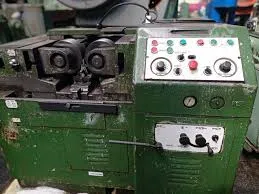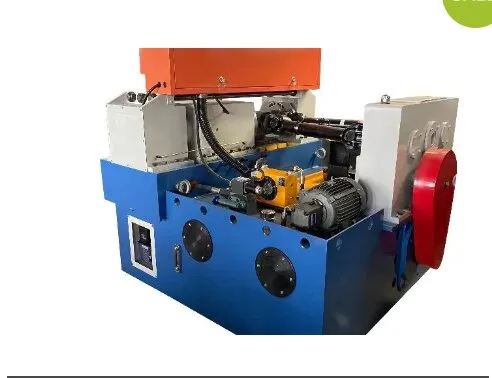
-
 Afrikaans
Afrikaans -
 Albanian
Albanian -
 Amharic
Amharic -
 Arabic
Arabic -
 Armenian
Armenian -
 Azerbaijani
Azerbaijani -
 Basque
Basque -
 Belarusian
Belarusian -
 Bengali
Bengali -
 Bosnian
Bosnian -
 Bulgarian
Bulgarian -
 Catalan
Catalan -
 Cebuano
Cebuano -
 Corsican
Corsican -
 Croatian
Croatian -
 Czech
Czech -
 Danish
Danish -
 Dutch
Dutch -
 English
English -
 Esperanto
Esperanto -
 Estonian
Estonian -
 Finnish
Finnish -
 French
French -
 Frisian
Frisian -
 Galician
Galician -
 Georgian
Georgian -
 German
German -
 Greek
Greek -
 Gujarati
Gujarati -
 Haitian Creole
Haitian Creole -
 hausa
hausa -
 hawaiian
hawaiian -
 Hebrew
Hebrew -
 Hindi
Hindi -
 Miao
Miao -
 Hungarian
Hungarian -
 Icelandic
Icelandic -
 igbo
igbo -
 Indonesian
Indonesian -
 irish
irish -
 Italian
Italian -
 Japanese
Japanese -
 Javanese
Javanese -
 Kannada
Kannada -
 kazakh
kazakh -
 Khmer
Khmer -
 Rwandese
Rwandese -
 Korean
Korean -
 Kurdish
Kurdish -
 Kyrgyz
Kyrgyz -
 Lao
Lao -
 Latin
Latin -
 Latvian
Latvian -
 Lithuanian
Lithuanian -
 Luxembourgish
Luxembourgish -
 Macedonian
Macedonian -
 Malgashi
Malgashi -
 Malay
Malay -
 Malayalam
Malayalam -
 Maltese
Maltese -
 Maori
Maori -
 Marathi
Marathi -
 Mongolian
Mongolian -
 Myanmar
Myanmar -
 Nepali
Nepali -
 Norwegian
Norwegian -
 Norwegian
Norwegian -
 Occitan
Occitan -
 Pashto
Pashto -
 Persian
Persian -
 Polish
Polish -
 Portuguese
Portuguese -
 Punjabi
Punjabi -
 Romanian
Romanian -
 Russian
Russian -
 Samoan
Samoan -
 Scottish Gaelic
Scottish Gaelic -
 Serbian
Serbian -
 Sesotho
Sesotho -
 Shona
Shona -
 Sindhi
Sindhi -
 Sinhala
Sinhala -
 Slovak
Slovak -
 Slovenian
Slovenian -
 Somali
Somali -
 Spanish
Spanish -
 Sundanese
Sundanese -
 Swahili
Swahili -
 Swedish
Swedish -
 Tagalog
Tagalog -
 Tajik
Tajik -
 Tamil
Tamil -
 Tatar
Tatar -
 Telugu
Telugu -
 Thai
Thai -
 Turkish
Turkish -
 Turkmen
Turkmen -
 Ukrainian
Ukrainian -
 Urdu
Urdu -
 Uighur
Uighur -
 Uzbek
Uzbek -
 Vietnamese
Vietnamese -
 Welsh
Welsh -
 Bantu
Bantu -
 Yiddish
Yiddish -
 Yoruba
Yoruba -
 Zulu
Zulu
मार्च . 06, 2025 12:24
Back to list
types of thread rolling machine products
Thread rolling machines stand as a cornerstone in the manufacturing world, facilitating precise and efficient production processes. The variations of these machines cater to diverse industrial needs, ensuring optimal thread quality and consistency. Understanding these types is pivotal for businesses aiming to enhance their production line’s performance and precision.
Cylindrical die rolling machines represent another innovative approach, offering solutions for complex thread geometry. With their ability to host multiple dies, these machines excel in creating symmetrical threads efficiently. This capability makes them especially useful in the manufacturing of screws and fasteners where precision threading is critical. The use of multiple dies not only speeds up the threading process but also enhances the precision and quality of the threads produced, catering to industries that prioritize superior thread alignment and durability. Incorporating advanced technology, many modern thread rolling machines are equipped with computer numerical control (CNC) systems. These systems enhance operational precision, enabling operators to program specific threading sequences and adjust machine settings on-the-go. CNC-enabled thread rolling machines provide unmatched flexibility and precision, accommodating complex design changes without compromising on quality. This adaptability is key in today’s market, where customization and rapid prototyping are increasingly demanded. Those venturing to implement thread rolling machines must carefully consider factors such as production volume, material properties, and desired thread specifications. Leveraging expertise in understanding these types enriches decision-making, ensuring the selection of machines that align with specific operational goals and industrial requirements. As industries continue to evolve, thread rolling machines will remain integral due to their efficiency, precision, and adaptability. The key lies in selecting the right type for your production line—each offering distinct features tailored to specific industrial demands. By ranking these machines according to their capabilities and aligning them with your operational needs, businesses can not only streamline their processes but also enhance product quality and consistency.


Cylindrical die rolling machines represent another innovative approach, offering solutions for complex thread geometry. With their ability to host multiple dies, these machines excel in creating symmetrical threads efficiently. This capability makes them especially useful in the manufacturing of screws and fasteners where precision threading is critical. The use of multiple dies not only speeds up the threading process but also enhances the precision and quality of the threads produced, catering to industries that prioritize superior thread alignment and durability. Incorporating advanced technology, many modern thread rolling machines are equipped with computer numerical control (CNC) systems. These systems enhance operational precision, enabling operators to program specific threading sequences and adjust machine settings on-the-go. CNC-enabled thread rolling machines provide unmatched flexibility and precision, accommodating complex design changes without compromising on quality. This adaptability is key in today’s market, where customization and rapid prototyping are increasingly demanded. Those venturing to implement thread rolling machines must carefully consider factors such as production volume, material properties, and desired thread specifications. Leveraging expertise in understanding these types enriches decision-making, ensuring the selection of machines that align with specific operational goals and industrial requirements. As industries continue to evolve, thread rolling machines will remain integral due to their efficiency, precision, and adaptability. The key lies in selecting the right type for your production line—each offering distinct features tailored to specific industrial demands. By ranking these machines according to their capabilities and aligning them with your operational needs, businesses can not only streamline their processes but also enhance product quality and consistency.
Share:
Latest news
Upgrade Your Production Line With Advanced Threading Solutions
NewsJun.12,2025
Optimize Precision With Advanced Thread Rolling Equipment
NewsJun.12,2025
Maximize Production With A High-Speed Thread Rolling Machine
NewsJun.12,2025
Master Precision Engineering With The Right Roller Threading Machine
NewsJun.12,2025
Find The Right Thread Rolling Tool For Precision Threading
NewsJun.12,2025
Boost Efficiency With Our Thread Rolling Machine
NewsJun.12,2025
